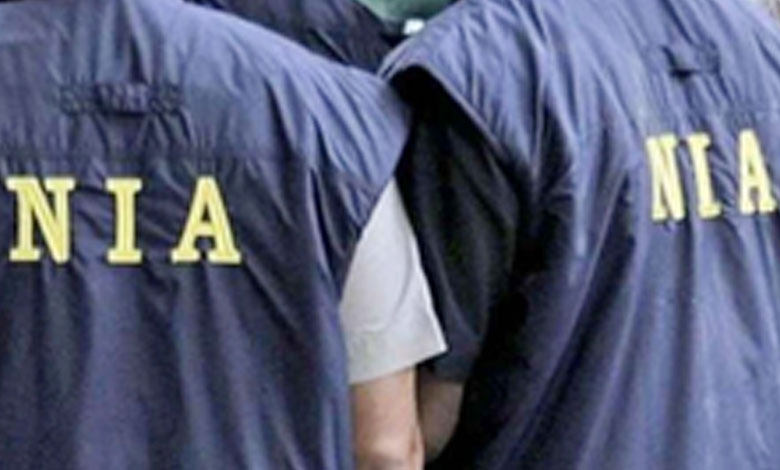NIA Raids Nine Locations in Jharkhand: Breakthrough in CPI(Maoist) Activities Case
The NIA raided nine locations in Jharkhand's West Singhbhum district, uncovering cash, explosives, and communication devices linked to CPI(Maoist) activities. Learn more about this significant breakthrough.

On Saturday, the National Investigation Agency (NIA) conducted extensive searches across nine locations in Jharkhand’s West Singhbhum district as part of an ongoing investigation into the activities of the banned CPI(Maoist).
The raids, aimed at uncovering the support network and logistical framework of the Maoist organization, yielded significant evidence linked to their unlawful activities.
Details of the NIA Raids
The operation, detailed in an official press release from the NIA, is part of a broader investigation under case number RC-02/2024/NIA/RNC. The case originated from the recovery of a substantial amount of cash and incriminating materials earlier in March 2024. This evidence was unearthed in a forested area between the villages of Husipi and Rajabhasa in West Singhbhum district.

The seized items included:
- Cash: ₹10,50,000 buried in a 20-litre plastic can.
- Communication Devices: A walkie-talkie, Samsung tablet, power bank, and a radio set.
- Explosives: Gelatin sticks believed to be intended for Maoist operations.
- Documents: Levy collection receipts and other materials used in organizational activities.
These items were recovered based on the disclosures made by Rajesh Deogam, a key accused in the case.
Premises Targeted in Raids
The NIA targeted premises of individuals suspected to be Overground Workers (OGWs) and active supporters of CPI(Maoist). These individuals are believed to have provided logistical support and essential supplies to the organization, aiding its unlawful activities. During the raids, investigators seized a range of items, including:
- Mobile phones and SIM cards
- Memory cards
- Other materials suspected to be used for Maoist operations.
These recoveries have added to the growing body of evidence against individuals linked to the banned group.
The Case Background
The case against CPI(Maoist) began in March 2024, when the Tonto Police Station in Chaibasa district registered a case involving the recovery of the aforementioned cash and materials. The investigation revealed a network of suspects and OGWs allegedly working to support CPI(Maoist) cadres, including senior leaders.
The NIA took over the case in July 2024, intensifying efforts to dismantle the network aiding the banned organization. The investigation has since uncovered crucial information about the group’s operations in the region.
Impact of the Raids
Saturday’s raids are a significant step in the NIA’s ongoing efforts to disrupt the logistical and financial networks of CPI(Maoist). The evidence seized during the operation is expected to strengthen the prosecution’s case and provide crucial insights into the functioning of the organization.
Officials from the NIA have reiterated their commitment to eradicating the support systems that allow CPI(Maoist) to operate. By targeting individuals and networks aiding the organization, the agency aims to weaken its ability to carry out unlawful activities.
Also Read | NIA conducts raids in Muzaffarpur, Vaishali in connection with seized AK-47s
Future Course of Action
With investigations still underway, the NIA is working to identify additional individuals involved in supporting CPI(Maoist). This includes tracking financial transactions, logistical arrangements, and communication channels used by the organization.
The agency is also focused on securing actionable intelligence to conduct further operations in regions where Maoist activities are suspected.
CPI(Maoist) in Jharkhand: A Persistent Threat
The CPI(Maoist) remains one of the most significant internal security challenges in India, particularly in states like Jharkhand. The organization operates through a network of cadres and OGWs, relying heavily on financial and logistical support from sympathizers and coerced local populations.
Over the years, efforts by law enforcement agencies, including the NIA, have significantly weakened the group’s capabilities. However, periodic recoveries of explosives, cash, and communication devices highlight the ongoing threat posed by the Maoists

